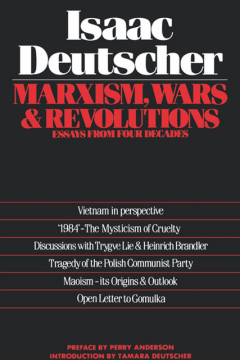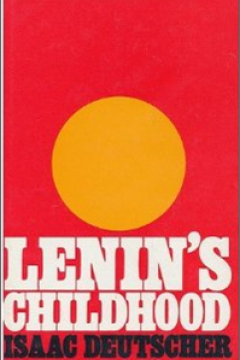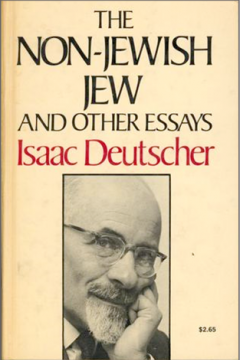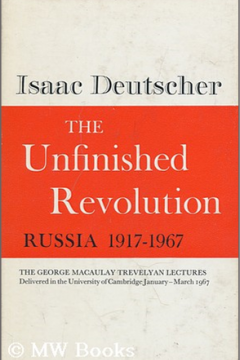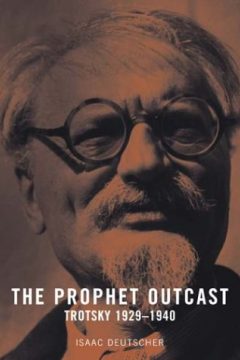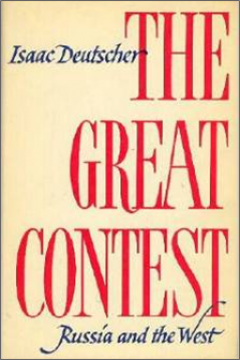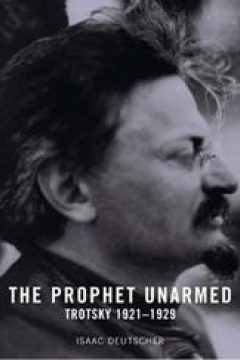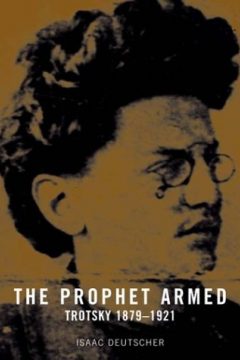Stalin: A Political Biography
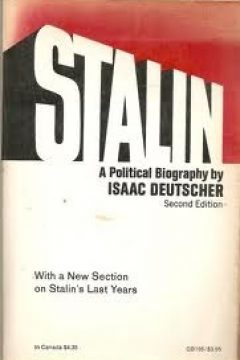 Isaac Deutscher (Estate)
Isaac Deutscher (Estate)Firmly established as the definitive biography of Stalin, Deutscher’s volume clearly demonstrates the forces that shaped this leader and the political scene of his time.
Stalin’s political behaviour makes sense when viewed in the context of his life. An intelligent child born to an abusive drunkard Father, his earliest life lessons must have been not to trust anyone, to keep his true thoughts hidden, to observe other people keenly, to bide his time and always protect himself against danger.
Stalin’s career, and this biography, cover an intense perid of Russian history from the last decades of the Tsars through revolution, civil war, World War, to the first decades of the nuclear age. It’s an epic, brutal, at times heroic, and almost always tragic tale.
Previously published in Brazil, Germany, Hungary and Poland.
Praise for Stalin: A Political Biography
‘Brings a whole period alive…[Deutscher] has produced what will…remain the classic biography and reference book until such time as the Bolshevik archives…are thrown open.’ —The New York Times Book Review
‘By far the best biography of Stalin available…It is convincing and quite objective, and…gives a plausible and logical explanation of Stalin’s life as it relates to the history of his times and to the other Marxist leaders of Russia.’ — South Atlantic Quarterly
‘The most widely read and accepted standard on the subject.’ — Review of Politics
‘A marvelous accomplishment…Hardly a page in which his treatment does not have the clarity, force, and fairness that comes from the fact that he places events in the enduring context of historical perspective.’ — John Dewey
‘The most readable, fair, informative, and generally useful of all the biographies of Stalin thus far published.’ — F.L. Schuman
‘As there is little to record about Stalin that is not political, this brilliant and fascinating volume is in effect a full-fledged “life and times.” The author has devoted many years to studying the relevant material, including documents hitherto unused by biographers of the Communist dictator. In tracing Stalin’s ideological development, his struggle to achieve supreme power and the uses to which he put that power, Mr. Deutscher covers no small part of the main currents of Soviet history. Nearly half the text deals with Russia’s foreign relations and their reaction on her domestic affairs. Some critics allege that the author’s views have been too much colored by Trotsky’s interpretations. But in general this seems probably as adequate a biography as we shall have until the passage of time shall have lent us still truer perspective.’ — Foreign Affairs
‘A brilliant, and although based on twenty years of study and research into Soviet affairs of which Stalin is an inseparable part, this is still a very absorbing portrait of one of the great men of our time. This book (and by comparison the Fischer, Duranty, Trotsky seem like surface impressions- personal, partisan, unverified) is necessarily- as subtitled- a political biography, since almost nothing is known of Stalin’s intimate life. But what Deutscher intends by that definition is that his book is an analysis of Stalin’s political achievements. And even these involve many complexities, many contradictions, since Stalin’s life is “”like an enormous palimpsest, where many scripts are superimposed upon one another, each script dating from a different period, each written by a different hand, each giving a different version of events””. One sees something of the man, enigmatic, colourless, distrustful of words, and with “”all the severity of Tsarist and Bolshevik Russia””. But the chief concern is with his career which is first subordinate, then a dominant directive in the course of Soviet history. The background, from what little is known, from childhood on; the early revolutionary activities; the path to power and its accumulation in Stalin’s hands; the heritage of Leninism- “”socialism in one Country”” which he continued and fulfilled, but which he was to extend as with the second, Stalinist revolution, international ideals were joined with national sentiment, and the socialism in one country ramified to include international demands and implications. And these two policies, the nationalist and the revolutionary, clashed on crucial points. Stalin however did not make “”a clear-cut choice between the two; he pursued both lines simultaneously; but whereas the nationalist one predominated during the war, the revolutionary one was to gain momentum after the war””. And in these later chapters there is an examination of this redirection of his foreign policy, from its first search for collective security before the war, through the war and Teheran, Yalta, Potsdam; to the impenetrable iron curtain of which he as the chief architect and which gave him the protection he needed at home and abroad; and finally the dangerous dilemma Russia and America face today as the two systems militate against each other, invalidating the concept of peaceful co-existence. A portrait which bears a certain detached admiration rather than animus, here Stalin is not classed with Hitler among the tyrants who left a record of worthlessness and futility. But creative as well as destructive, he takes his place with Robespierre, Cromwell and Napoleon, who also rode to power on the back of a revolution, mastered it, and carried it beyond its original intentions and the confines of one country.’ — Kirkus Review

